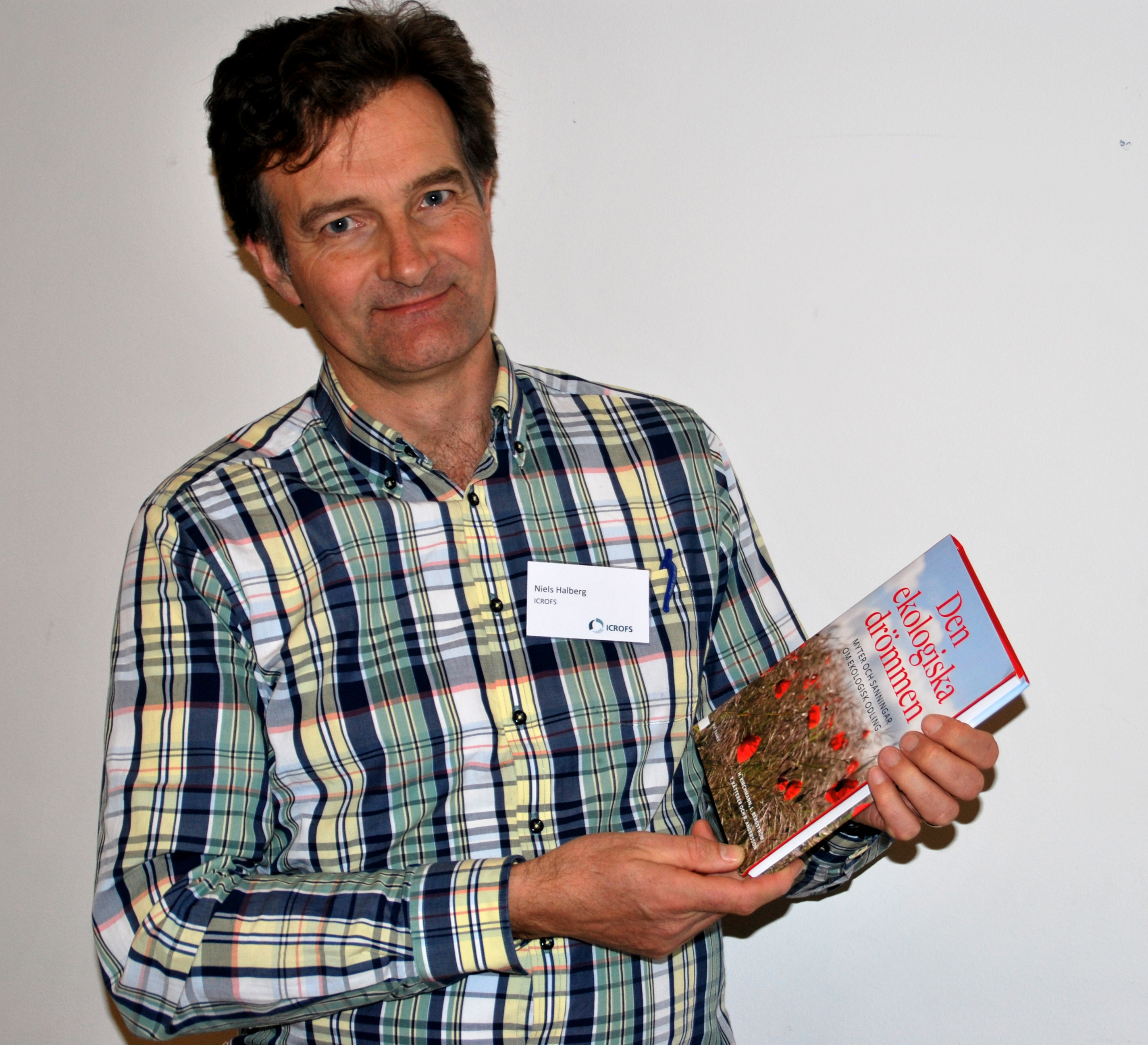Heated debate on organic farming and food security
A heated debate on organic farming and food security has recently caught much attention in Sweden and Denmark. A book by four Swedish agro-scientists from SLU initially fueled the debate.

By Ulla Skovsbøl
“Experts in hard attack on organic farming: A disaster without profit". “Organic farming is a catastrophe for people and the environment” and “Pesticides are better than ecology" were only some of the lines shaping a heated debate that recently swept through Swedish and Danish media.
The debate was initiated by a new book: "Den Ekologiska Drömmen” (The Organic Dream) by four Swedish agro-scientists from the Swedish University of Agricultural Sciences (SLU). Their view on organic farming is highly critical and they claim, it would be a total disaster if the entire farm sector in Sweden converted to organic farming. The book was first presented by the four authors themselves in a major Swedish newspaper, Svenska Dagbladet, and soon the debate flourished in papers and magazines, on TV and radio and in web-media all over Sweden. It also reached the Danish tabloid BT and LandbrugsAvisen, the paper of the national farmers organization in Denmark, Landbrug & Fødevarer , where the coverage was running over several weeks.
Hard challenges
ICROFS always welcomes serious discussion on organic farming methods, Niels Halberg, the director of ICROFS underlines. But according to him the recent debate has unfortunately to large extent been characterized by misunderstandings and misinformation.
“First and foremost I have to make it clear that ecology and organic farming is neither a catastrophe to humanity nor to the global environment. Organic farming methods are, however, in a process of development constantly trying to meet the crucial and complex challenges we are facing in the world of today,” he says.
“The most critical challenge to modern farming is to ensure sufficient food production to a world population of more than nine billion people by 2050 and at the same time ensure that the production takes place in a sustainable way that does not destroy the soil fertility in the long term, but enhances biodiversity and other eco-systems services” he says.
“We need to preserve biodiversity, ensure clean drinking water and good ecological quality of the aquatic environment and prevent further climate change while we at the same time increase production. Organic farming is an attempt to develop farming methods which can meet these complex challenges,” says Niels Halberg.
Serious misunderstandings
In "Den Ekologiska Drömmen” the authors claim that organic farming is less sustainable than conventional, less climate-friendly and that it cannot feed the world's growing population. Furthermore, it is not better for the environment, and organic food is not healthier than conventional food, the authors say.
It is well documented and recognized – also by the UN - that existing conventional farming methods often destroy farmland and soil fertility and reduces biodiversity to an unacceptable degree. This is a serious threat to future global food security. Pesticides affect the biodiversity and can potentially contaminate the aquatic environment and groundwater resources and in addition, the negative effects of pesticides on human health are probably also underestimated, according to Niels Halberg.
“ICROFS has taken on the task to coordinate a new international project, VOVE, in order to identify the dissemination of agro-ecological farming globally and to explore the potential of this form of cultivation - and for good reasons. There is a need for more radical innovation and development pathways in order to nourish the world future, and organic and agro-ecological farming methods are part of the solution,” Niels Halberg states.